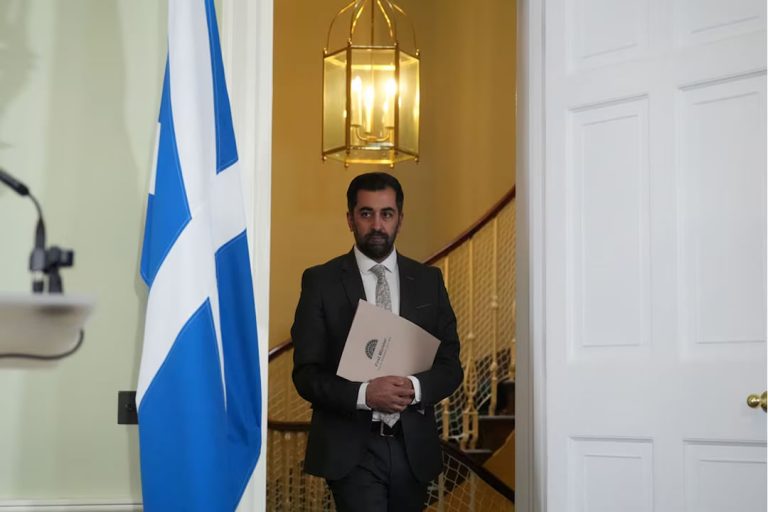People who have no symptoms of coronavirus must be prepared from June 1 to “do their bit” by self-isolating for 14 days if told they could be a carrier, the Health Secretary warned today.
Writing exclusively in the Evening Standard , Matt Hancock revealed the move to “test and trace” will impose a new social responsibility on the public to stay at home for two weeks even if they feel well.
He announced £300 million of grants to local authorities to hire “an army” of officials who will help ease the country out of lockdown and back to work by investigating every new known infection and alerting those who could possibly have caught it.
“Everyone will have a part to play,” Mr Hancock said, appealing to the country to help prevent a new peak of Covid-19 as the economy and society recovers.
“Not just hygiene and social distancing, but getting a test if you have symptoms, and under the new system, self-isolating if you’ve been in close contact with someone who tests positive. That way, under test and trace, people who have been in contact with a positive case and are at higher risk can isolate, and we can ease more measures on everyone else.”
Details of the new rules will be spelled out by the Government next week ahead of the June 1 launch.
The power to impose fines on people who disobey exists under emergency legislation, but it is not yet clear whether they will be needed to support the new policy.
Another detail to be decided on over the coming days is whether spot checks will be carried out on people at home to make sure they are not secretly going out or working as normal.

People returning from abroad will have to quarantine for a fortnight, Home Secretary Priti Patel was expected to confirm this afternoon, with spot checks and fines of up to £1,000 to ensure good behaviour.
Mr Hancock however emphasised the social contract between the public and the contact-tracing drive.
At stake is whether the whole country has to stay in the quasi-quarantine of lockdown, or just those believed to be a potential risk of spreading Covid-19.
“This is where our new test and trace service comes in, so we can hunt down this virus and give it nowhere to hide,” he wrote.
It will be run locally in partnership with London boroughs and other councils nationwide. “We will work with them to reduce the spread of coronavirus in their area, harnessing their local knowledge and mobilising boots on the ground.”
At present people must self-isolate if they or a family member have symptoms. Under the new system, they could get a phone call from an official ordering them to isolate.
Last night it was revealed that 17 per cent of Londoners have antibodies meaning they have had coronavirus. Outside the capital the rate is just five per cent.
“The number of new cases is clearly falling, and Londoners are doing their bit,” Mr Hancock wrote. “London will emerge stronger than ever before.”
In key developments as the country waited for the next phase of Boris Johnson’s exit strategy:
- Scientific papers from the Sage advisory committee were set to support a “cautious and phased” return of primary schools from June 1, albeit with caveats about the need to monitor it, sources indicated. Cabinet Minister Brandon Lewis said: “I hope that that will give the confidence to schools, to teachers parents and the local authorities to see that its safe with the right conditions to get those children back into school from the first of June onwards.”
- Government borrowing spiralled to £62.1 billion in April, more than the whole of last year, Office for National Statistics figures revealed.
- National testing co-ordinator Professor John Newton confirmed that the NHSX tracing app will not be ready on June 1. He said there are no plans yet for weekly testing of care home residents and workers.
- Transport for London announced it will reintroduce bus fares tomorrow in the latest move by Mayor Sadiq Khan to tackle TfL’s debts. Customers on 85 routes served by more than 1,200 buses will initially need to touch in with their contactless, Oyster or concessionary card when they board.
- Researchers began recruiting volunteers for the next two phases in clinical trials of a possible a coronavirus vaccine. They asked for 10,260 people across the country to come forward. Professor Andrew Pollard, head of the Oxford Vaccine Group, said: “We are now initiating studies to evaluate how well the vaccine induces immune responses in older adults, and to test whether it can provide protection in the wider population.”
A care home boss has called for regular testing of residents and staff. Sam Monaghan, chief executive of MHA, told BBC Radio 4’s Today programme that three per cent of staff and five per cent of residents did not show Covid-19 symptoms but then tested positive.
He added: “If you have got people walking around the home, interacting with others, then you are going to have that real risk of continuing to bring the infection in. And with the relaxation of some of the lockdown measures out in the community then there could be the potential for some of our staff to then be more susceptible to picking up the virus and bringing it into our homes.”
Of the 28 MHA care homes involved in a government pilot of whole-home testing, 20 were found to have at least one member of staff or resident who were asymptomatic with Covid-19.

















+ There are no comments
Add yours